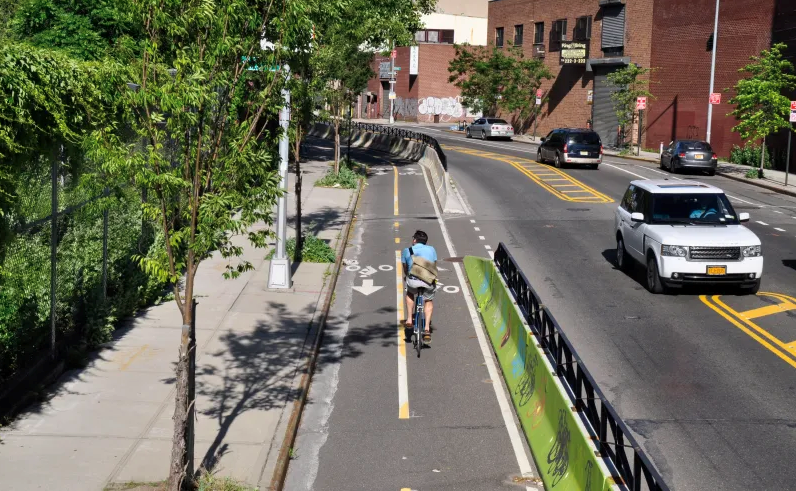There are more Brooklyn cyclists and pedestrians using the Brooklyn Waterfront Greenway, a 29-mile protected route along the waterfront, and a majority of them use the route multiple times a day, a recent study found.
A study highighting the health and environmental benefits of the Brooklyn Waterfront Greenway released on Tuesday found that an average of 23,500 cyclists and 36,00 pedestrians used the Greenway during July 2023, according to a press release.
Conducted by the New York City Department of Transportation and data firm Numina, the study, released by the Brooklyn Greenway Initiative and Regional Plan Association, revealed the health benefits of using the Greenway, including daily exercise through either walking or biking to various destinations.
Brooklyn residents living in Williamsburg, Greenpoint and Sunset Park were among the biggest users and beneficiaries of the Greenway, the study found.
“Our findings show the importance of completing the final seven miles of the Brooklyn Waterfront Greenway,” said Hunter Armstrong, executive director of Brooklyn Greenway Initiative. “It’s more clear than ever that the more interconnected and accessible our green spaces are, the healthier, happier, and cleaner our communities can be.”
The key findings include:
- Nearly 75% of users visit the Greenway multiple times a week for both recreational and commuting purposes. Daily, an estimated 6,200 to 16,500 people use the Greenway for exercise, highlighting its role in public health; 30% of recreational users would not have made their trips without it, and almost 40% of commuters would not have walked or biked to work if the Greenway were unavailable.
- The Greenway promotes environmental benefits by reducing car dependency, connecting to transit nodes, and preserving green spaces, while also supporting resilience infrastructure like rain gardens and bioswales.




